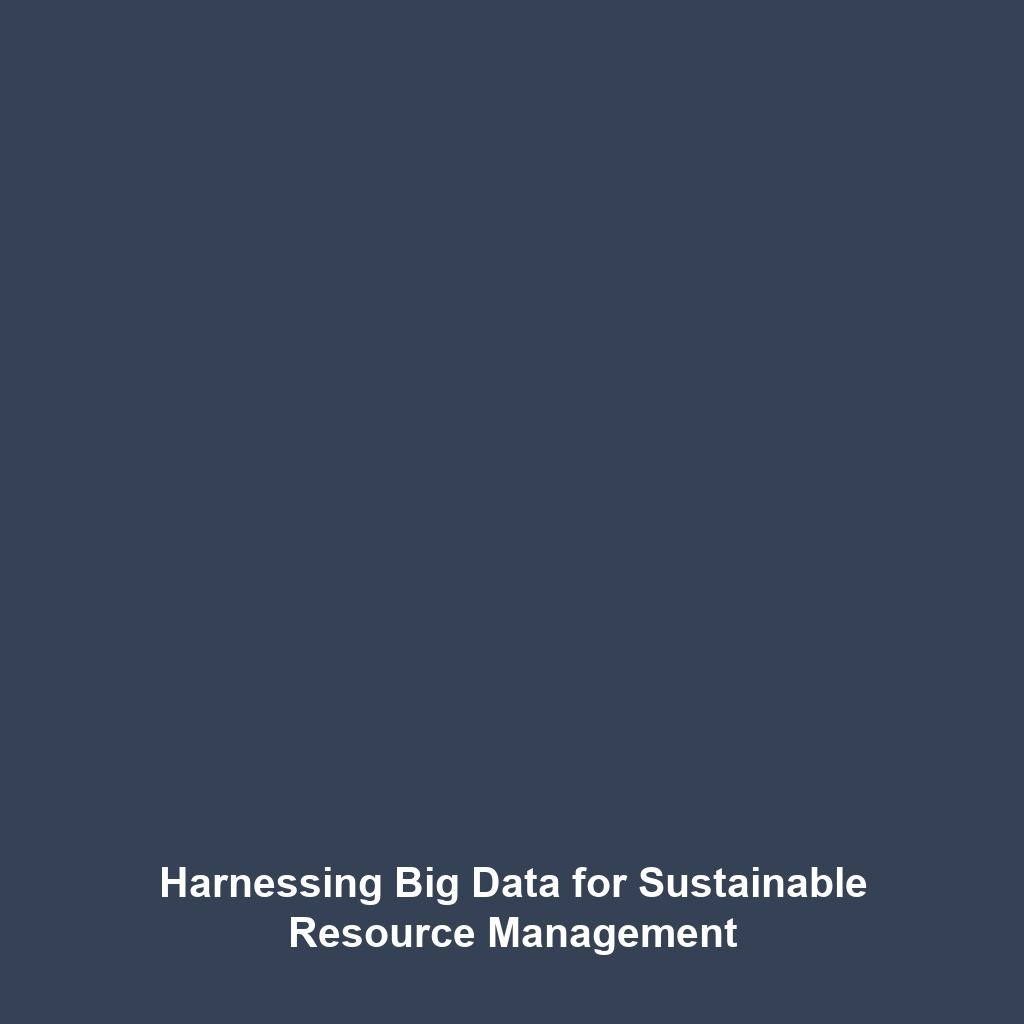Sustainability and Resource Management: The Impact of Big Data in Science
Introduction
Sustainability and Resource Management have gained unprecedented significance in recent years as the world confronts environmental challenges and resource scarcity. Within the broader context of Big Data in Science, these fields leverage analytical intelligence to enhance decision-making and improve efficiency in resource usage. By harnessing vast amounts of data, organizations can develop sustainable practices that balance economic growth with ecological responsibility. This article explores the integration of sustainability principles with big data technologies, highlighting the transformative potential that data science offers in optimizing resource management.
Key Concepts
Understanding Sustainability
Sustainability refers to the practice of meeting current needs without compromising the ability of future generations to meet their own. It encompasses various concepts, including environmental protection, economic viability, and social equity.
Resource Management Principles
Resource management involves the efficient and sustainable deployment of resources—such as water, energy, and raw materials—to meet human needs while preserving the environment. It is an essential component within the umbrella of Big Data in Science, where data analytics plays a critical role in forecasting, modeling, and optimizing resource utilization.
Big Data’s Role
Big Data technologies allow scientists and decision-makers to analyze complex datasets, uncover patterns, and make informed predictions about resource consumption. The use of big data is revolutionizing how sustainability and resource management practices are developed and implemented, driving innovation across various sectors.
Applications and Real-World Uses
The applications of Sustainability and Resource Management within the framework of Big Data in Science are expansive and impactful. Prominent examples include:
- Urban Planning: Utilizing data analytics for efficient public transport systems and green spaces.
- Agriculture: Precision farming techniques that enhance crop yield while minimizing resource use.
- Energy Management: Smart grids and renewable energy systems that optimize consumption patterns.
- Water Resource Management: Monitoring water use through real-time data to mitigate waste and enhance conservation efforts.
Current Challenges
While the integration of sustainability with big data offers numerous advantages, several challenges arise, including:
- Data Privacy and Security: Ensuring the protection of sensitive information.
- Data Quality: The accuracy and reliability of data can significantly impact decision-making.
- Integration Issues: Merging data from disparate sources can be complex.
- Resource Limitations: Not all organizations have access to advanced data analytics tools.
Future Research and Innovations
Looking ahead, ongoing research in Sustainability and Resource Management is poised to yield innovative solutions powered by Big Data in Science. Key focus areas include:
- Development of AI-driven tools for predictive analytics in resource allocation.
- Exploration of blockchain for transparent resource tracking.
- Advancements in IoT technology for real-time resource monitoring and management.
Conclusion
In summary, Sustainability and Resource Management are critical components of the challenge to create an ecologically responsible and resource-efficient world. The integration of Big Data in Science enhances our ability to make informed decisions that will shape the future of resource allocation. As we move forward, it is essential to embrace innovation and collaborative efforts to tackle environmental issues effectively. For more information on related topics, consider exploring our articles on Urban Planning and Precision Agriculture.
